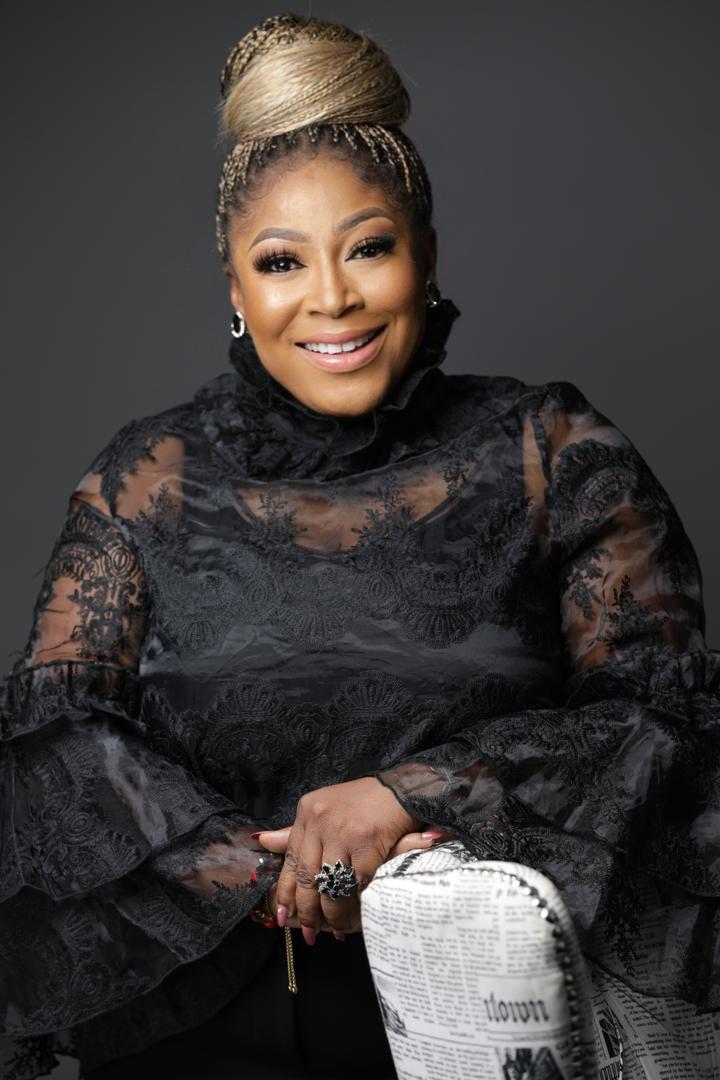It was a rainy September afternoon in Birmingham when I first met Abiola Ebunoluwa Onalaja—marketing expert, researcher, and founder of the Ewa-UK platform. Sitting in a modest co-working café just off Broad Street, she had the quiet intensity of someone who had seen a gap in the market and wasn’t waiting for permission to fill it. She greeted me with the warmth of someone used to making things happen behind the scenes, but when she began to explain the concept behind her project, her tone shifted to the confident clarity of a seasoned strategist. “Ewa-UK isn’t just an app,” she said. “It’s a direct intervention. A solution where cultural exclusion meets digital convenience.”
A recent graduate of the MSc Enterprise Management programme at University College Birmingham, validated by the University of Birmingham and the University of Warwick, Abiola didn’t just submit a dissertation. She authored a comprehensive business strategy rooted in field research, behavioural insights, and commercial planning. As a marketing expert and researcher, she drew from deep personal understanding and formal business theory to propose Ewa-UK a mobile platform that delivers personalised, professional haircare services to multiethnic women directly in their homes, starting in the West Midlands.
Her research revealed a frustrating reality: though multiethnic women contribute over £230 million monthly to the UK health and beauty sector, less than 1% of salons in her target region are prepared to care for afro-textured hair. “There is a disconnection between supply and identity,” she told me. “It’s not just about beauty it’s about dignity, access, and voice.” As a researcher, she conducted surveys, focus groups, and competitive mapping exercises, identifying the pain points ignored by mainstream platforms and turning them into actionable business priorities. As a marketing expert, she shaped her communication strategy with surgical precision, developing a brand that is authentic, aspirational, and grounded in lived experience.

Ewa UK is not designed to be a replica of existing booking apps. It is built from the ground up to serve a population that has long been underserved. Every interface decision, every pricing model, every stylist onboarding feature was crafted by Abiola through the dual lens of research data and brand psychology. She developed multiple consumer personas, including Toya, a digital-first real estate professional who values flexible appointments, and Lisa, a part-time nurse juggling motherhood and beauty care, both of whom represent real segments of Britain’s diverse haircare market.
When she speaks about her platform, it’s never in vague startup language. It’s backed by numbers. The business plan she authored outlines how Ewa-UK will recruit 200 stylists, target 10,000 downloads, and generate over 3,500 appointments within six months of launch, achieving profitability of £163,004 in the first year. As a marketing expert, she knows that scale depends on loyalty, so her plan includes customer rewards, real-time feedback tools, and continuous refinement based on user sentiment. As a researcher, she’s already built the measurement framework for evaluating success at every level.
What impressed me most during our conversation was how naturally she moves between theory and empathy. She benchmarked her platform against competitors like Booksy, Frohub, MAHB, and Fresha, but didn’t stop at technical comparisons. Instead, she critiqued their brand messages, user journeys, and market blind spots. “They weren’t built with us in mind,” she said. “They retrofitted diversity. Ewa-UK starts from it.” That’s the distinction only a marketing expert who is also a social researcher would notice and act on.
Her academic project includes extensive competitive positioning maps, Porter’s Five Forces analysis, and PESTLE frameworks. But what stands out is how human it all feels. She described to me the frustration of women who self-style because of a lack of trust in local salons. She quoted her primary data: over 80% of respondents said they were open to at-home styling; 56% prioritised competence over price; 34% were willing to pay more for after-hours convenience. She even shared her plans for community-building—content on afro-textured haircare, cultural heritage blogs, and stylist education initiatives.
Abiola’s experience in marketing communications shines in how she presents every element of the business. Her app doesn’t just solve a problem; it tells a story. The brand language is assertive yet warm, bold yet graceful. Her platform is inclusive without being performative, commercial without being extractive. She’s already exploring partnerships with accelerators, multicultural councils, and women-led business communities across the UK. But she’s also aware of the pitfalls. “This isn’t about tech hype,” she told me. “It’s about sustainable social commerce where the user isn’t just a buyer, but a participant in their own empowerment.”
Legal compliance? She’s thought of it. From GDPR to UK licensing gaps in hairstyling, from consumer protection laws to stylist insurance everything is documented in her business architecture. She even anticipates shifts in UK digital markets law and has designed Ewa-UK to evolve with those changes. As a researcher, she’s obsessed with accuracy; as a marketing expert, she’s obsessed with trust.
The timing could not be more urgent. In a UK beauty market worth over £27.2 billion, recent figures show that multiethnic consumers alone contribute at least £2.7 billion annually, a staggering 10% of total consumer spending. Yet according to an independent study by Habia, only 0.2% of salons in the West Midlands a region with over 442,000 Black or mixed-race residents serve afro-textured hair. Nationally, fewer than 314 salons out of more than 45,000 licensed establishments offer such services. The gap is not just statistical. It’s cultural, economic, and deeply personal. Abiola, a marketing expert and researcher with years of experience crafting campaigns for underrepresented markets, sees it as a service failure rooted in institutional blindness. “The market exists. The money is being spent. But the infrastructure excludes,” she told me.
Her research shows that 60% of respondents currently style their hair at home, often due to the absence of qualified salons nearby. An overwhelming 82% are ready to book home services, and 34% are willing to pay a premium for after-hours or personalised appointments. These aren’t luxury services they are survival strategies within a broken system. Ewa-UK makes that survival dignified, professional, and frictionless. During the COVID-19 pandemic, the problem deepened. Energy inflation has pushed many traditional salons to raise prices or shut down altogether. The British Association of Beauty Therapy and Cosmetology reported that 94% of salon owners experienced electricity bill spikes, with many forced to close one day a week. Ewa-UK’s model is a perfect counterweight: low-overhead, home-based, and digitally enabled.
But what makes Abiola needed in the UK today isn’t just her business idea, it’s her readiness to execute. She wrote a full-scale 100+ page startup plan supported by original surveys, stakeholder maps, regulatory reviews, and user personas. Her business strategy calls for onboarding 200 stylists, generating 10,000 app downloads, and achieving over 3,500 appointments within six months. These aren’t speculative numbers. They’re part of a validated, achievable roadmap for transforming an underserved sector into a scalable digital economy.
Abiola’s value also lies in her ability to speak to communities historically ignored by formal institutions. Her marketing practice is not theory it’s active listening. She understands how to build trust with culturally diverse audiences. She knows how to shape brand tone that is aspirational but never alienating. She sees customers not as segments, but as individuals with heritage, context, and evolving needs. That’s the kind of leadership the UK needs now more than ever, particularly as policymakers push for regional regeneration, inclusive entrepreneurship, and innovation that actually matters.
She represents exactly the kind of entrepreneur the UK government says it wants to promote Black, female, research-led, scalable, and social-impact focused. In a post-Brexit economy trying to bridge regional inequality and foster digital innovation, Ewa-UK ticks every policy box while simultaneously fulfilling an emotional and cultural void that market metrics have ignored for too long.
The scalability of Ewa-UK isn’t hypothetical. If successful in the West Midlands, the business model can be replicated in Yorkshire, Humberside, Greater Manchester, and beyond regions with similar demand and limited access. The model empowers stylists, reduces overheads, and enhances customer choice. It also has the potential to shift beauty standards, create jobs, and challenge long-standing biases in how services are priced, promoted, and delivered.
As our conversation drew to a close, Abiola looked up from her screen and out into the street, where rain tapped gently against the windowpanes. “It’s taken years for textured hair to be seen in boardrooms, in textbooks, in advertising. I’m not here to ask for inclusion. I’m here to build the thing we needed all along.” And in that moment, I understood exactly why she is not only the right person for this work but a critical force for national transformation.
The UK doesn’t just need new services. It needs leaders like Abiola Onalaja, leaders who don’t just study inequity but solve it. Leaders who know how to combine intellect, empathy, and execution. Leaders who build with integrity and scale with meaning. Ewa-UK is more than a startup. It is a declaration. A cultural reset. A digital bridge between community and commerce. And Abiola? She’s just getting started.


































